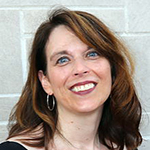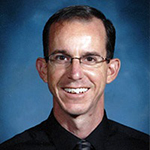
A “helicopter parent” is someone who’s excessively active in the life of their child. Because these folks can often fly well past the point of being over-protective, the phrase is typically used disparagingly. However, it may be helpful to remember that these parents do want your program to be awesome.
Really awesome.
What’s more, they often appear to have excess energy and time. Can you imagine what that would be like? What if you could leverage their time and energy to your benefit?
Because no two parents are like, no single response will work in every situation. For that reason, we asked several music educators for their suggestions on ways to work productively with hyper-involved parents.

“When demanding parents ask questions, they are usually stating (or hiding) a demand in the form of a question. I have learned to ask, ‘What would you like me to do?’ Not surprisingly, you will often get a very direct answer. You can’t always meet the demand, but it helps to acknowledge the elephant in the room.”
– Chris Russell, director of choirs at Oltman Middle School (St. Paul Park, MN), and Technology in Music Education Blog author @CJRPhD
 “Go on the offensive and take advantage of some of the tech resources out there that allow you to keep parents in the loop your way. For instance, you could create a ‘Performance Wall of Fame’ with a display of students faces (photos or avatars) in the classroom or hallway and add a QR code to each picture. When scanned with a smartphone, the QR code would lead the parents directly to a recording of a piece they have been practicing or a recent performance. The parents can scan the QR code and listen on the spot.”
“Go on the offensive and take advantage of some of the tech resources out there that allow you to keep parents in the loop your way. For instance, you could create a ‘Performance Wall of Fame’ with a display of students faces (photos or avatars) in the classroom or hallway and add a QR code to each picture. When scanned with a smartphone, the QR code would lead the parents directly to a recording of a piece they have been practicing or a recent performance. The parents can scan the QR code and listen on the spot.”
– Katie Wardrobe, trainer, presenter, music tech consultant, and Midnight Music author

“I have found that listening to a parent’s concerns and allowing them to be heard helps establish a positive relationship. Maintaining a frequent and open line of communication, including your expectations, is equally important and effective.”
– Keith Ozsvath, band director at Rotolo Middle School (Batavia, IL), instructor at VanderCook College of Music, and Teaching Band and More author @KeithOzsvath

“Make a file for every student [online or paper or both] where you collect their assessments, notes on behavior, rubrics, and any completed projects. It will be an invaluable resource for when a parent asks why their student got a ‘B’ in music. Being confronted with the facts usually does the trick of shifting any potential blame off the teacher and onto the student. As Neil DeGrasse Tyson says, ‘You don’t need belief when presented with facts.’”
– Angela Harman, orchestra director at Spanish Fork Jr. High (Spanish Fork, UT), and OrchestraClassroom.com author @teachorchestra

“Try to channel parents’ energies into volunteer tasks where they can really benefit the program but you are able to maintain control. As you get to know the parent better, use that opportunity to gently encourage them to allow their child to do more tasks for themselves. Sometimes we have to educate parents, as well as students.”
– Wendy Higdon – Performing Arts Department Chair and Director of Bands at Creekside Middle School (Carmel, IN), and On and Off the Podium author @wendyhigdon

“Stay one step ahead of demanding parents by being organized; posting information on websites or social media; or sending emails. If they know you are on the ball, they are more likely to trust you and back off the pressure. You can also be proactive and ask them to take care of something for you. They are often happy to help!”
– Jonathan Peske, band director at Summit Intermediate School (Etiwanda, CA) @jpeske

“Over-involved parents want to know all the details as far in advance as possible. You can satisfy them by planning ahead, having expectations, policies, and calendar commitments clearly documented, and by establishing a clear line of communication. Define boundaries of how much communication between you and them is appropriate, and make sure that they understand that their student’s needs are only a part of the overall needs of the full music program.”
– Thomas West, music teacher at the Center for Performing and Fine Arts (Philadelphia, PA), and Thomas J. West Music author @thomasjwest